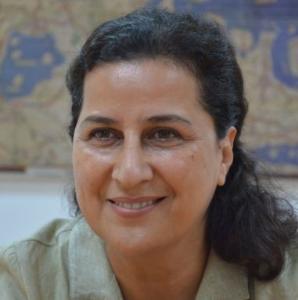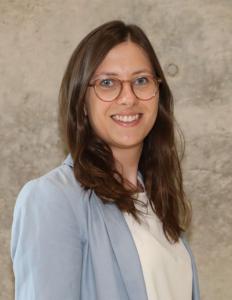Specialist conference
Details
The Levant: From Ancient Gateway to Modern Chaos – The Search for a Regional Order
Date: 27-28 April 2017
The Levant – generally known as Eastern Mediterranean – consists of Syria, Lebanon, Israel, Jordan, Palestine, Cyprus, and parts of Egypt and Turkey and as a region has historically played an important role in international politics due to its geostrategic position, hydrocarbon resources and proximity to Islamic, Christian and Jewish religious sites. Moreover, powerful regional actors and their diverse military, political and economic interests create numerous fault lines and drivers of conflicts. The outbreak of the Arab Spring in late 2010 with popular uprisings against autocratic regimes in the Middle East and North Africa has further unsettled the balances in the region and the crises in Iraq and Syria continue to threaten stability and prosperity all around.
The breakup of state apparatus, oftentimes termed as state failure, has provoked political polarization, sectarianism and occasional civil wars, enabling the emergence of powerful non-state actors in the region. Disagreements between the key regional powers, external interventions and shifting alignments between regional and international actors in a multipolar constellation have added new layers to the already complex and unpredictable situation.
Faced with this imbroglio, the region needs to find ways to (re-)establish a regional order. This sparks the question of whether the functioning of the region was ever based on a regional order or whether stability was sustained through other dynamics. And if there has been a previous regional order, which pillars was it grounded on? Why did it not succeed in maintaining stability and security? In a next step, these experiences need to be evaluated with regards to a future regional order – what it should entail and how it could be brought about? Which shared interests and common principles could be agreed upon as basis for interactions within the regional order? Is an institutionalized forum or mechanism necessary in order to create such an order? How does economic development and regional integration affect the making of a regional order? And what role can regional as well as international actors, but also newly emerged non-state actors play?
The conference aims to answer these questions and to provide a conceptual framework for further discussions on the topic by looking at the different components and actors that can influence the creation of a sustainable regional order for the Levant.
Program
Thursday, 27 April 2017
09:00 Welcoming Remarks
Dr. Canan Atilgan, Director Regional Program South Mediterranean, Konrad-Adenauer-Stiftung
Prof. Mustafa Aydın, Rector, Kadir Has University, Istanbul
09:30 Panel 1: Challenges for a Regional Order in the Context of Fluid Global Power Constellations
Definitions of what constitutes a regional order vary considerably within the academic discourse. While some definitions regard it rather broadly as pattern of activity to achieve and maintain the goals of a group of states, other definitions stress its specific function to limit violence or focus on the shared interests and rules underlining the order. The first panel sets the conceptual framework for the further discussion by identifying which components constitute a regional order. What role do political and ideational variables play? And what is the historical experience of the Levant for a sustainable regional order?
Moderator: Dr. Mustafa Aydın, Professor, Dept. of International Relations, Kadir Has University, Istanbul
- The Making of Regional Order in the Levant; Past and Present
Dr. Steven Heydemann, Professor, Middle East Studies, Smith College
- Identity Politics and Regional Order
Kristina Kausch, Senior Resident Fellow, German Marshall Fund, Brussels
- The Threat of Radicalization and Non-State Actors
Dr. Vincent Durac, School of Politics & International Relations, University College Dublin
11:30 Panel 2: Foundations of the Regional Political Order
After the popular uprisings of the Arab Spring, fueled by inequalities, oppression, and frustration, regime change and political reform have become key issues in the region. Hopes for political change and democratic development in the region have however mostly been disappointed since authoritarian regimes have pushed back the social and political demands of their populations. The uprisings were either quelled or led to violent conflicts rather than regime change. Nevertheless, the stability of the region has been shaken by the demands for democracy, equality and participation. Can a regional order be created and maintained in the current context of contested authoritarian states? Or does the situation necessitate either a comeback of strong authoritarian states or the creation of inclusive and pluralistic political systems? And how can political systems react to the rising levels of sectarianism which threaten stability?
Moderator: Koert Debeuf, Director, Tahrir Institute for Middle East Policy, Brussels
- The Resilience of Authoritarian Regimes
Salam Kawakibi, Deputy Director, Arab Reform Initiative, Paris
- Democratic Transitions in the Levant and the Role of Civil Society
Dr. Katerina Dalacoura, Dept. of International Relations, London School of Economics
14:30 Panel 3: Building a Regional Economic Framework
The offshore discovery of hydrocarbons in the Levant in the Tamar and Leviathan fields in 2009 and 2010 respectively has changed regional dynamics considerably, provoking discussion on potential cooperation among regional actors, a role as catalyzer for the resolution of the Cyprus issue, and to ease Europe’s dependency on Russia in terms of energy. This also opens up broader questions on the region’s future economic order. How can economic integration influence the stability of the region? In what ways can economic interdependence be fostered despite historical animosities and ideological differences between key actors?
Moderator: Dr. Manuel Schubert, Director, KAS Office Jordan
- Discovery in the Levant: Can New Energy Supplies Bring Peace?
Dr. Gareth Winrow, Dept. of Continuing Education, Oxford
- The Potential and Alternative Models for Economic Integration in the Levant
Prof. Nader Habibi, Department of Economics, Brandeis University, Massachusetts
- Challenges of Demographic Pressure, Climate Change, and Resource Scarcity for Political Economy in the Levant
Prof. Özlem Tür, Dept. of International Relations, Middle East Technical University, Ankara
20:00 Dinner
Friday, 28 April 2017
09:00 Panel 4: The New Balance of Power: Key Actors for the Region
The developments in the Levant over the last decade from the invasion of Iraq to the failure of the Arab-Israeli peace process as well as the recent region-wide turmoil have seriously affected the regional balance of power. The competition among regional actors has not only increased the instability in the region, but has also triggered the emergence of new challenges such as the consolidation of sectarian divergences, the increased role of non-state actors with the support of external powers, as well as, the outbreak of new political tensions among regional actors. Moreover, extra-regional powers have been seeking to maintain and/or increase their influence throughout the region via military presence and political alignments. This session seeks to answer the questions of how the policies of regional and international actors and their shifting relations shape the region as well as which role non-state actors play in this increasingly complex balance of power.
PART 1: Saudi Arabia, Turkey, Iran and Egypt - The Regional Power Players
Moderator: Prof. Özlem Tür, Dept. of International Relations, Middle East Technical University, Ankara
- Geopolitical Interests and Strategies of Saudi Arabia in the Levant
Dr. Hasan Al Momani, Prince Alhussein Bin Abdullah II School of International Studies, University of Jordan
- Turkey’s Approach to the Levant: Is There a Role for Turkey?
Dr. Mustafa Aydın, Professor, Dept. of International Relations, Kadir Has University, Istanbul
- Implications of the Nuclear Deal on Iran’s Role in the Levant
Dr. Sanam Vakil, Associate Fellow, Middle East North Africa Programme, Chatham House
- Egypt’s Ambitions in the Levant
Koert Debeuf, Director, Tahrir Institute for Middle East Policy, Brussels
11:30 PART 2: The US, Russia, the EU and China – International Influencers
Moderator: Dr. Gareth Winrow, Dept. of Continuing Education, Oxford
- Russian Policy in the Levant and its Implications for the Regional Balance of Power
Irina Zvyagelskaya, Chief Research Associate, Institute for Oriental Studies, Russian Academy of Sciences, Moscow
- The US Policies Towards the Levant
Soli Özel, Lecturer, Kadir Has University & Fellow, Robert Bosch Academy
- What role for the EU?
Dr. Valeria Talbot, Head of the Mediterranean and Middle East Program, Italian Institute for International Political Studies, Milano
- Understanding China’s ambitions in the Levant
Bingbing Wu, Director of Institute of Arab-Islamic Culture, Peking University
15:00 Panel 5: Conclusions and Recommendations – Security Development, and Pluralism; Basis for a new regional order in the Levant
Over the long term, structural transformations within the region will require a sustainable new order that can guarantee stability and security and redefine power relations between regional actors and their international backers. After identifying the main components and variables that constitute and influence regional order in the Levant, the question remains what an appropriate framework for the creation of such an order could be. Are there existing frameworks which could be expanded to provide a basis for a regional order? Could any of the existing examples serve as a model in this regard? Or can a regional order in the Levant also be achieved without an institutionalized mechanism?
Moderator: Dr. Mustafa Aydın, Professor, Dept. of International Relations, Kadir Has University, Istanbul
16:30 End of the conference
20:00 Dinner




